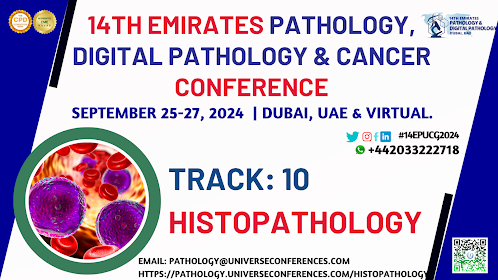Understanding Different Types of Cancer: A Comprehensive Guide
Cancer is a broad term for a group of diseases characterized by the uncontrolled growth and spread of abnormal cells. There are over 100 different types of cancer, each classified by the type of cell initially affected. Understanding the various types of cancer can help in recognizing symptoms, seeking appropriate treatment, and fostering awareness. Here’s an overview of some of the most common and notable types of cancer:
Overview: Breast cancer develops in the cells of the
breasts, most commonly in the ducts or lobules. It primarily affects women but
can also occur in men.
Symptoms:
A lump in the breast or underarm
Changes in breast shape or size
Nipple discharge
Skin changes on the breast
Risk Factors: Genetics, age, hormonal factors, lifestyle choices
Screening: Mammograms, breast self-exams, clinical breast exams
2. Lung
Cancer
Overview: Lung cancer begins in the lungs and is often
associated with smoking, although non-smokers can also develop it. There are
two main types: small cell lung cancer (SCLC) and non-small cell lung cancer
(NSCLC).
Symptoms:
Persistent cough
Chest pain
Shortness of breath
Coughing up blood
Risk Factors: Smoking, exposure to secondhand smoke, radon gas, asbestos, and
other carcinogens
Screening: Low-dose CT scans for high-risk individuals
Overview: Prostate cancer occurs in the prostate gland in
men. It's one of the most common cancers among men, especially older men.
Symptoms:
Difficulty urinating
Blood in urine or semen
Pelvic discomfort
Erectile dysfunction
Risk Factors: Age, family history, race (more common in
African-American men)
Screening: Prostate-specific antigen (PSA) test, digital
rectal exam (DRE)
Overview: Colorectal cancer starts in the colon or rectum.
It often begins as noncancerous polyps that can develop into cancer over time.
Symptoms:
Changes in bowel habits
Blood in stool
Abdominal discomfort
Unexplained weight loss
Risk Factors: Age, diet, family history, inflammatory bowel
disease
Screening: Colonoscopy, fecal occult blood test (FOBT),
sigmoidoscopy
5. Skin
Cancer
Overview: Skin cancer is the most common type of cancer. It
includes melanoma, basal cell carcinoma, and squamous cell carcinoma. Melanoma
is the most serious type.
Symptoms:
Changes in moles or skin lesions
New growths on the skin
Lesions that bleed or don’t heal
Risk Factors: UV exposure from the sun or tanning beds, fair
skin, family history
Screening: Regular skin checks, dermoscopic examination
6. Leukemia
Overview: Leukemia is a type of cancer that affects the
blood and bone marrow. It leads to the production of abnormal white blood
cells. There are several types, including acute lymphocytic leukemia (ALL) and
chronic lymphocytic leukemia (CLL).
Symptoms:
Fatigue
Frequent infections
Easy bruising or bleeding
Bone or joint pain
Risk Factors: Genetic mutations, certain blood disorders,
exposure to radiation or chemicals
Screening: Blood tests, bone marrow biopsy
7. Lymphoma
Overview: Lymphoma is a cancer of the lymphatic system. The
two main types are Hodgkin lymphoma and non-Hodgkin lymphoma.
Symptoms:
Swollen lymph nodes
Fever
Night sweats
Weight loss
Risk Factors: Weakened immune system, certain infections
(e.g., Epstein-Barr virus), age
Screening: Physical exams, lymph node biopsy, imaging tests
Overview: Pancreatic cancer begins in the tissues of the
pancreas and is often diagnosed at a late stage due to its subtle symptoms.
Symptoms:
Jaundice
Abdominal pain
Unintended weight loss
Digestive problems
Risk Factors: Smoking, obesity, diabetes, family history
Screening: Imaging tests, blood tests for tumor markers
Conclusion
Each type of cancer presents unique challenges and requires
specific approaches to diagnosis and treatment. Early detection through regular
screenings and awareness of symptoms can significantly improve outcomes.
Maintaining a healthy lifestyle, staying informed about risk factors, and
seeking regular medical check-ups are key steps in cancer prevention and early
detection.
Conference
Name: 14th Emirates
Pathology, Digital Pathology & Cancer Conference
Short Name:
14EPUCG2024
Dates: December
17-19, 2024
Venue: Holiday
Inn Dubai, UAE & Online
Email: pathology@universeconferences.com
Visit: https://pathology.universeconferences.com/
Submit here: https://pathology.universeconferences.com/submit-abstract/
Register here: https://pathology.universeconferences.com/registration/
Online Registration here: https://pathology.universeconferences.com/virtual-registration/
Call Us:
+12073070027
WhatsApp us at:
https://wa.me/442033222718?text=
#Pathology #MedicalPathology #Pathologist #ClinicalPathology #AnatomicPathology #PathologyLab #Histopathology #Cytopathology #PathologyResearch #PathologyEducation #DigitalPathology #DigitalHealth #PathologyInnovation #Telepathology #DigitalDiagnosis #PathologyTechnology #DigitalMicroscopy #PathologyInformatics #DigitalPathologist #PathologyWorkflow #Cancer #Oncology #CancerResearch #CancerAwareness #CancerTreatment #CancerPrevention #CancerSurvivor #CancerSupport #CancerCare #CancerDiagnosis
.png)


.png)
Comments
Post a Comment